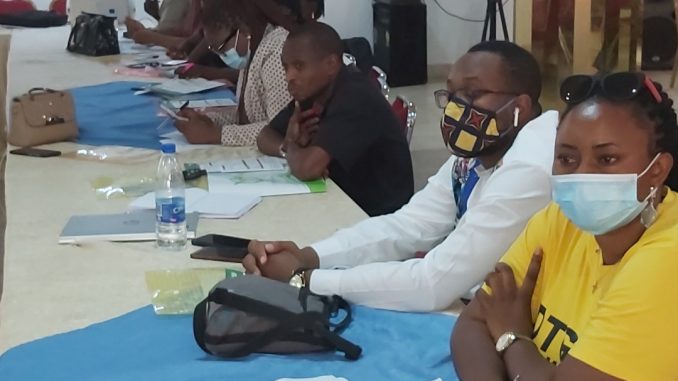
By Kemi Yesufu
Lingering challenges in Nigeria’s national response to HIV/AIDS, such as stigma and discrimination, inadequate data, discriminatory laws will mostly likely hinder the country’s push for zero-new HIV infections by 2030.
Nigeria’s HIV/AIDS Strategic Plan (NSP) 2017-2021 as developed by the National Agency for the Control of AIDS (NACA) has a 2030 target to achieve zero-HIV positive infection. The vision of the NSP 2017-2021 is “An AIDS-free Nigeria, with zero new infection, zero AIDS related discrimination and stigma, with a broad goal to “Fast-track the national response towards ending AIDS in Nigeria by 2030”.
However in a HIV Prevention Shadow Report by A coalition of Civil Society Organizations, who are members of the (HIV) Key Populations Secretariat, the Nigerian government must strengthen monitoring, capacity development and financial gap analysis to meet its targets.
The report scored the Nigerian government on 10 parameters. On the point of Key Population Size Estimates , Needs Assessment and Prevention Targets, the Nigerian government was graded as having made good progress.
But for other reliable basis for planning and providing HIV prevention services and information, such as Defined Key Population and Adolescent Girls and Young Women Size Estimates, the Nigerian government was recorded as making partial progress and little or no progress respectively.
Presenting the report on Monday in Abuja to the media and CSOs on behalf of the (HIV) Key Populations Secretariat, Mr. Aniede Emah Akpan stressed that discriminatory laws such those which criminalise same sex marriage, drug use and commercial sex work has resulted in the country no having accurate figures on HIV/AIDS among these vulnerable groups.
Speaking further on aspects of the report which point to a need for legal and policy reform in Nigeria, Akpan, who is the chairman Drug Harm Reduction Advocacy Network, said in 2019 only 20.1 percent of men who have sex with men utilized HIV prevention services, while sex workers and persons who use drugs had a 17.6 percent and 9.3 percent utilization respectively.
He also called for the domestication of relevant laws that protect adolescent girls and other vulnerable groups by states, as some of these good laws are only enforced at the federal level.
“We have issues in the country whereby laws are made at the national level, but not implemented at the state level. A good example is the Freedom of Information Act”, he said.
A further look at the report shows that like other aspects of healthcare, HIV services and marginalized groups were adversely affected by the COVID-19 pandemic. Nigeria’s health budget was also slashed by 45 percent by the Federal Government as part of its budget readjustment following low oil prices caused by the global COVID-19 lockdown. This is as national response to HIV remains largely funded by international donors.






Be the first to comment